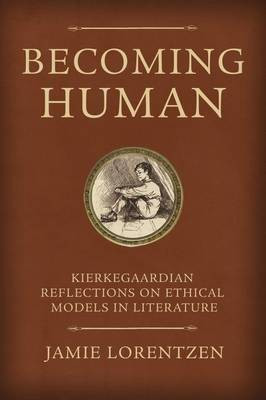Becoming Human(English, Paperback, Lorentzen Jamie)
Quick Overview
Product Price Comparison
What does it mean to become a human being? This question was persistently repeated by Kierkegaard scholar Howard V. Hong (1912-2010) to students during his forty-year tenure at St. Olaf College. As one of Dr. Hong's students, Jamie Lorentzen never forgot the question-one that always pointed to the ethical upbuilding of individuals. Lorentzen lets this question set the tone in literature classes he has been teaching for more than twenty- five years. In Becoming Human: Kierkegaardian Reflections on Ethical Models in Literature, Lorentzen's Kierkegaard studies inform commentary on how central characters in four works of literature help readers answer Howard Hong's question. Twain's Huck Finn becomes human by being an unwitting ethicist despite himself and the pro-slavery culture in which he was reared. Ishmael and Queequeg's embrace of the neighbor and outcast in Melville's Moby-Dick is an ethical counterpoint to Ahab's terrifying narcissism. Meanwhile, Ibsen's famous narcissist, Peer Gynt, o ers an archetypal negative ethical model for becoming human. Finally, Dostoevsky's Father Zosima and Ivan and Alyosha Karamazov show how ethics informs human development in both secular and religious cultures. Underlying Lorentzen's thesis of becoming human are questions like What do these books have to do with my life? Why should I take time to read them well? Lorentzen's answer frames the Introduction. The book's Coda remembers Dr.Hong and the seemingly impossible questions he posed about life and literature that nonetheless are not impossible,but instead, according to Lorentzen, are "simply questions that evoke the possible in us all."


